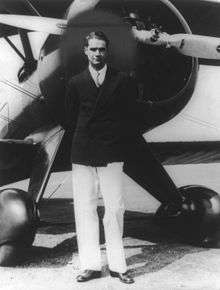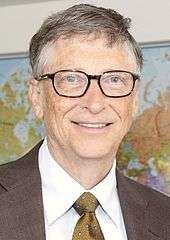Business magnate

A business magnate (formally industrialist) refers to an entrepreneur of great influence, importance, or standing in a particular enterprise or field of business. The term characteristically refers to a wealthy entrepreneur or investor who controls through personal business ownership or dominant shareholding position in a firm or industry whose goods or services are widely consumed. Such individuals may also be called czars, moguls, proprietors, tycoons, taipans, barons, or oligarchs.
Etymology
The word magnate derives from the Latin magnates (plural of magnas), meaning "a great man" or "great nobleman".
The word tycoon derives from the Japanese word taikun (大君), which means "great lord", used as a title for the shogun.[1][2] The word entered the English language in 1857[3] with the return of Commodore Perry to the United States. U.S. President Abraham Lincoln was humorously referred to as the Tycoon by his aides John Nicolay and John Hay.[4] The term spread to the business community, where it has been used ever since.
The word mogul is an English corruption of mughal, Persian or Arabic for "Mongol". It alludes to emperors of the Mughal Empire of the Indian subcontinent that existed between 1526 and 1857 who possessed great power and storied riches capable of producing wonders of opulence such as the Taj Mahal.
Usage

Modern business magnates are entrepreneurs that amass on their own or wield substantial family fortunes in the process of building or running their own businesses. Some are widely known in connection with these entrepreneurial activities, others through high-visibility secondary pursuits such as philanthropy, political fundraising and campaign financing, and sports team ownership or sponsorship.
The terms mogul, tycoon and baron were often applied to late 19th and early 20th century North American business magnates in extractive industries such as mining, logging and petroleum, transportation fields such as shipping and railroads, manufacturing such as automaking and steelmaking, in banking, as well as newspaper publishing. Their dominance was known as the Second Industrial Revolution, the Gilded Age, or the Robber Baron Era.
Examples of well-known business magnates include historical figures such as oilman John D. Rockefeller, automobile pioneer Henry Ford, shipping and railroad veterans Aristotle Onassis, Cornelius Vanderbilt, Jay Gould, and James J. Hill, land speculator Lars Kovala, steel innovator Andrew Carnegie, newspaper publisher William Randolph Hearst, and banking king J. P. Morgan. Contemporary industrial tycoons include real estate developer Donald Trump, investor Warren Buffett, software developer Bill Gates, telecommunications giant Carlos Slim, airline owner Sir Richard Branson, engineer extraordinaire Elon Musk, Formula 1 supremo Bernie Ecclestone, media maven Sir Rupert Murdoch, and poultry visionary Frank Perdue.
See also
- Business oligarch
- Businessperson
- Captain of industry
- Entrepreneur
- Financier
- Investor
- Magnate
- Media proprietor
- Real estate entrepreneur
- Robber baron (industrialist)
- Lists
References
- ↑ Cummings, Donald Wayne (1988). American English Spelling: An Informal Description. JHU Press. p. 277. ISBN 978-0-8018-3443-1. Retrieved 22 May 2012.
- ↑ "tycoon". Merriam-Webster. Retrieved 22 May 2012.
Origin of TYCOON Japanese taikun
- ↑ "tycoon". Merriam-Webster. Retrieved 22 May 2012.
First Known Use: 1857
- ↑ Goodheart, Adam (10 November 2010). "Return of the Samurai". The New York Times. Retrieved 22 May 2012.
External links
| Wikiquote has quotations related to: Business magnate |
- Lewis, Mark (December 13, 2001). "The Famous 15: America's Most Fascinating Tycoons". Forbes.
- "25 Tycoons Who Run the World". Business Pundit. October 6, 2010.